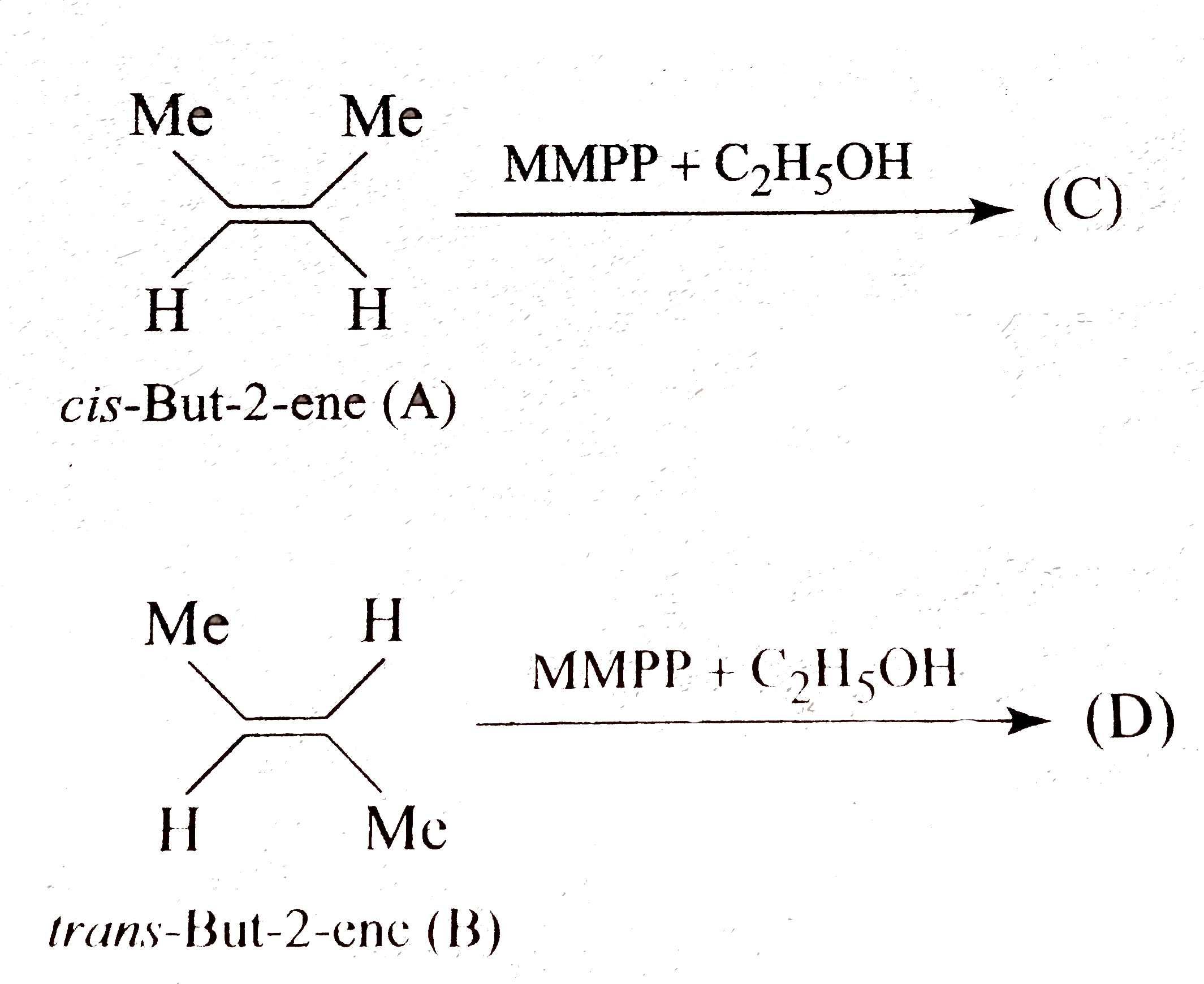For the equlibrium H2O(s)⇔H2O(l) which of the following statements is true?
The pressrue changes do not effect the equlibrium
More of ice melts, if pressrue on the system in increased
More of liquid freezes, if pressure on the system is increased
Less of ice melts, if pressrue on the system is increased
The correct Answer is:B
To solve the question regarding the equilibrium H2O(s)⇌H2O(l), we need to analyze the effects of pressure changes on the equilibrium between solid water (ice) and liquid water.
1. Understanding the Equilibrium:
The equilibrium H2O(s)⇌H2O(l) represents the phase transition between ice (solid) and liquid water.
2. Le Chatelier's Principle:
According to Le Chatelier's principle, if an external change is applied to a system at equilibrium, the system will adjust itself to counteract that change. In this case, we are looking at the effect of pressure changes.
3. Effect of Pressure on Ice-Water Equilibrium:
- Ice (solid) has a lower density than liquid water. Therefore, when pressure is increased, the equilibrium will shift towards the side with less volume.
- In the case of the ice-water equilibrium, increasing pressure favors the formation of liquid water because liquid water occupies less volume compared to solid ice.
4. Analyzing the Statements:
- Statement 1: "Pressure changes do not affect the equilibrium."
- This statement is false because pressure does affect the equilibrium.
- Statement 2: "More of ice melts if pressure on the system is increased."
- This statement is true. When pressure increases, the equilibrium shifts towards the liquid phase, resulting in more ice melting.
- Statement 3: "More of liquid freezes if pressure on the system is increased."
- This statement is false. Increasing pressure does not favor the freezing of liquid water into ice; instead, it favors melting.
- Statement 4: "Less of ice melts if pressure on the system is increased."
- This statement is false. As previously stated, increasing pressure leads to more ice melting.
5. Conclusion:
The correct answer is Statement 2: "More of ice melts if pressure on the system is increased."
The equilibrium H2O(s)⇌H2O(l) represents the phase transition between ice (solid) and liquid water.
According to Le Chatelier's principle, if an external change is applied to a system at equilibrium, the system will adjust itself to counteract that change. In this case, we are looking at the effect of pressure changes.
- Ice (solid) has a lower density than liquid water. Therefore, when pressure is increased, the equilibrium will shift towards the side with less volume.
- In the case of the ice-water equilibrium, increasing pressure favors the formation of liquid water because liquid water occupies less volume compared to solid ice.
- Statement 1: "Pressure changes do not affect the equilibrium."
- This statement is false because pressure does affect the equilibrium.
- Statement 2: "More of ice melts if pressure on the system is increased."
- This statement is true. When pressure increases, the equilibrium shifts towards the liquid phase, resulting in more ice melting.
- Statement 3: "More of liquid freezes if pressure on the system is increased."
- This statement is false. Increasing pressure does not favor the freezing of liquid water into ice; instead, it favors melting.
- Statement 4: "Less of ice melts if pressure on the system is increased."
- This statement is false. As previously stated, increasing pressure leads to more ice melting.
The correct answer is Statement 2: "More of ice melts if pressure on the system is increased."
Topper's Solved these Questions
- EQUILIBRIUMBOOK - AAKASH INSTITUTE ENGLISHCHAPTER - EQUILIBRIUMEXERCISE - Assignment (SECTION-C) (OBJECTIVE TYPE QUESTIONS (MORE THAN ONE OPTION ARE CORRECT)
10 Videos
- EQUILIBRIUMBOOK - AAKASH INSTITUTE ENGLISHCHAPTER - EQUILIBRIUMEXERCISE - Assignment (SECTION-D) (LINKED COMPREHENSION TYPE QUESTIONS)
8 Videos
- EQUILIBRIUMBOOK - AAKASH INSTITUTE ENGLISHCHAPTER - EQUILIBRIUMEXERCISE - Assignment (SECTION-A) (SUBJECTIVE TYPE QUESTIONS(ONE OPTION IS CORRECT)
45 Videos
- ENVIRONMENTAL CHEMISTRYBOOK - AAKASH INSTITUTE ENGLISHCHAPTER - ENVIRONMENTAL CHEMISTRYEXERCISE - ASSIGNMENT (SECTION-D) (Assertion - Reason Type Questions)
4 Videos
- GENERAL PRINCIPLES AND PROCESSES OF ISOLATION OF ELEMENTSBOOK - AAKASH INSTITUTE ENGLISHCHAPTER - GENERAL PRINCIPLES AND PROCESSES OF ISOLATION OF ELEMENTSEXERCISE - Assignment (Section-D) Assertion-Reason Type Question
15 Videos
Similar Questions
For an equilibrium H2O(s)⇔H2O(l), which of the following statements is ture ?
View SolutionFor a physical equilibrium, H2 O (Ice) ⇔H2 O (Water ) which of the following is the true statement:
View SolutionWhich of the following is a true structure of H2O2?
View SolutionWhich of the following is a true structure of H2O2 ?
View Solution
(C) H3O+/H2O−−−−−−−→(E)
(D) H3O+/H2O−−−−−−−→ (F)
Which of the following statements is / are correct ?
View SolutionWhich of the following statements about H2O2 is not true ?
View Solution
α- maltose (C12H22O11) can be hydrolysed to glucose (C6H12O6) according to the following reaction.
C12H22(O11(aq)+H2O(l)→2C6H12O6(aq)
Given:
Standard enthalpy of formation of C12H22O11(aq)=−2238kJmol
Standard enthalpy of formation of H2O(l)=−285kJmol
Standard enthalpy of formation of C6H12O6(aq)=−1263kJmol
Which of the following statements (s) is/are true?
View SolutionFeCr2O4+Na2CO3+O2Fusion−−−→[X]H+−−−−−→H2O[Y]H2O/H+−−−−−→[Z]
Which of the following statement is true for the compounds [X], [Y] and [Z]?
View SolutionAg⊕ forms complexes some of these are
[Ag(NH3)2]⊕,2[Ag(CN)2]Θ,[Ag(S2O3)2]3−
Which of the following statements is true? .
View SolutionFor the reaction Ag2O(s)→2Ag(s)+1/2O2(g), which one of the following is true :
View Solution
